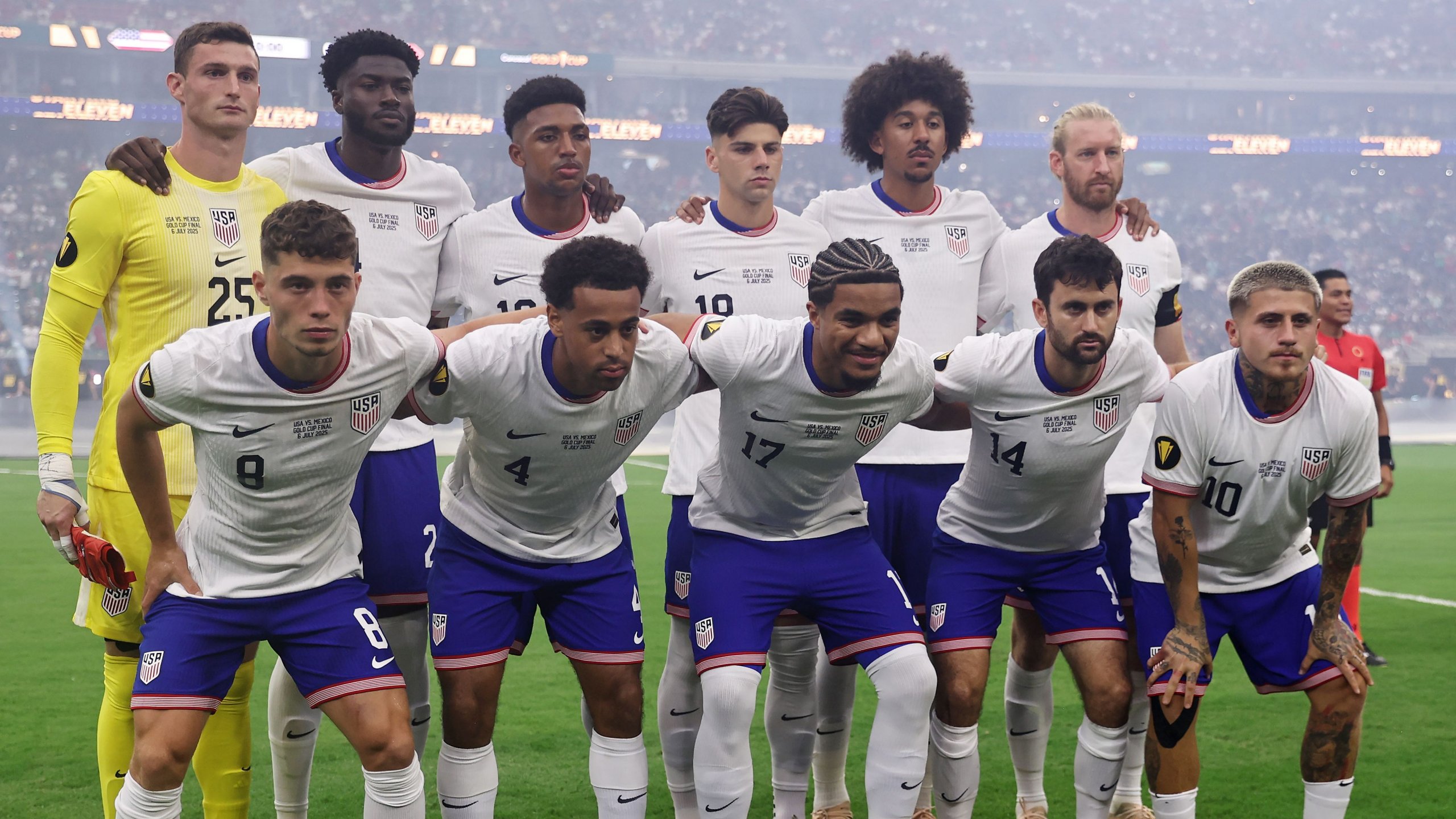USMNT Gold Cup Failure Pins Pressure on Pochettino
USMNT Gold Cup disappointment is at the heart of Herculez Gomez’s blistering assessment of Mauricio Pochettino’s roster decisions after a 2-1 defeat to Mexico in Las Vegas. The former national-team striker insists the coach’s player pool was simply too shallow, too MLS-heavy and too young to withstand the pressure of a tournament that historically demands experience and star power.
Why the USMNT Gold Cup squad drew Gomez’s ire
Gomez’s primary contention is straightforward: a full-strength side featuring Christian Pulisic, Folarin Balogun and Ricardo Pepi would almost certainly have reached a different outcome. Pochettino’s October appointment gave him multiple camps to identify a core group, yet the lineup that walked onto Allegiant Stadium’s pitch contained 15 domestic-league players, many on their senior international debuts. For Gomez, that imbalance stacked the odds against the U.S. before the opening whistle.
The superstar void and the ‘sum-of-all-parts’ dilemma
In the analyst’s view, the absence of a marquee name—think Lionel Messi for Argentina or Cristiano Ronaldo for Portugal—means the United States can only succeed when the collective talent level is high. Without that A-list talisman, the USMNT Gold Cup roster required depth, chemistry and composure. Replacements such as Patrick Agyemang, Sebastian Berhalter and Max Arfsten may become future contributors, yet thrusting them into a regional final amplified nerves and exposed inexperience.
MLS workload vs. international intensity
Several players arrived mid-season from physically taxing MLS schedules. Fitness was not the problem; the gulf in game speed and tactical nuance was. Mexico exploited positional lapses on both goals, while the Americans manufactured few clear chances outside a consolation strike. Asking domestic talents to close that gap with minimal international seasoning underscores Gomez’s charge that Pochettino misjudged the moment.
How coaching choices shaped the narrative
The Argentine manager touted the tournament as a developmental window, but critics counter that the Gold Cup is a trophy the program should always aim to win. Tactical experimentation—high defensive lines, inverted full-backs—looked optimistic rather than strategic. When Mexico overloaded the flanks, in-game adjustments arrived late, and substitutions failed to shift momentum. Gomez argues that seasoned internationals would have recognized danger earlier, restoring structure before damage spread.
Lessons from past cycles
History warns against rolling the dice. In 2015, a similarly weakened squad bowed out in the semifinal; two years later, Bruce Arena relied on veterans and lifted the crown. The pattern suggests balance, not wholesale experimentation, breeds success. The current setback risks derailing broader plans for the 2026 World Cup on home soil if cohesion cannot be established well before group-stage kickoff.
What the USMNT Gold Cup exit means for the road ahead
Pochettino and sporting director Matt Crocker must now navigate a precarious trust gap. European-based stars expect defined roles; MLS newcomers need clear pathways. September’s international window against Colombia and Canada could reunite the first-choice XI, finally offering a glimpse of the system Pochettino has sketched on whiteboards. Results—and performances—will dictate whether this Gold Cup stands as a blip or a harbinger.
Player availability challenges
Club commitments, injuries and congested calendars will always complicate call-ups. Yet programs with ambitions of deep World Cup runs find solutions: early negotiations, staggered rest protocols, and transparent communication. Gomez maintains that the federation possessed enough leverage to secure at least half of its European core for a three-week summer tournament.
Tournament experience matters
Veterans understand CONCACAF’s unique grind—sweltering venues, hostile crowds and unpredictable officiating. Youngsters benefit from that mentorship, learning how to manage tempers and clock. Without it, yellow cards piled up, and game management waned during the frenetic final minutes versus El Tri.
Opinion: Time for calculated risk, not blind optimism
Pochettino’s desire to blood prospects is commendable, but context matters. The USMNT Gold Cup should have been treated as both developmental lab and silverware opportunity. Rotating three or four positions per match, while keeping a seasoned spine, would have delivered minutes to rookies and protection from meltdown. With Copa America 2024 looming on domestic soil, the margin for error shrinks. Fielding the best possible roster—augmented by high-ceiling youngsters—feels less like conservatism and more like common sense.
Your global gateway to nonstop football coverage:
Goal Sports News
Share this content:
